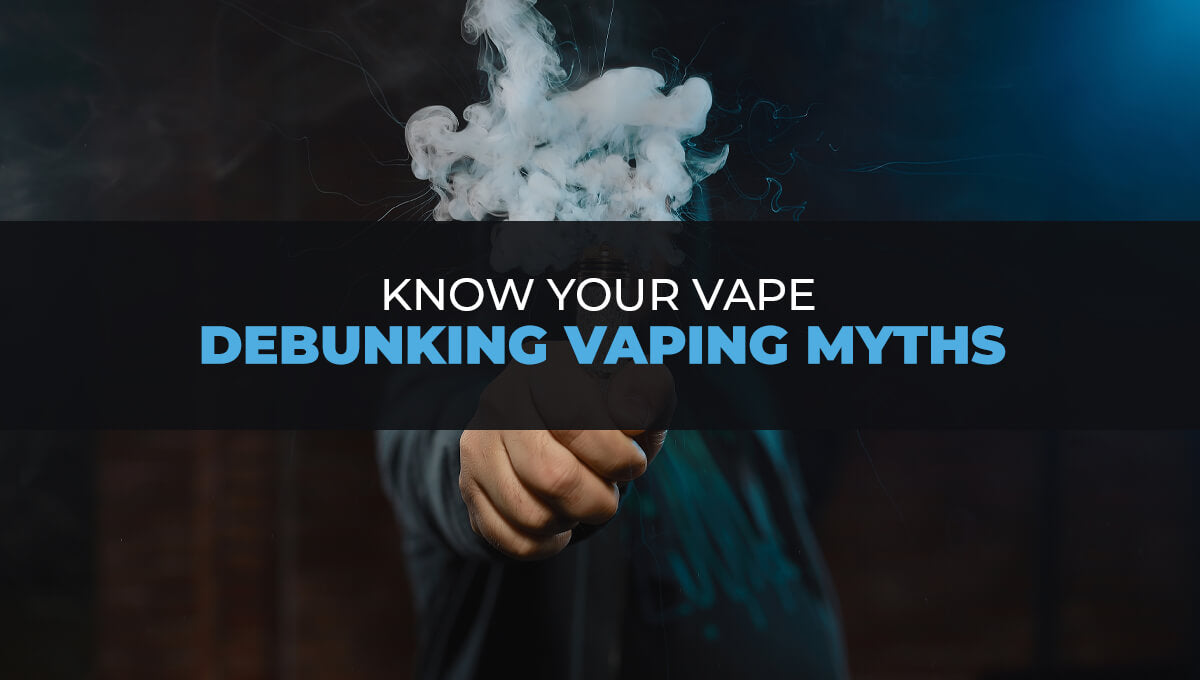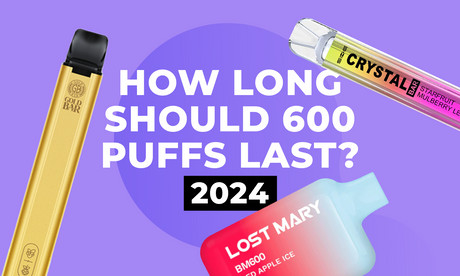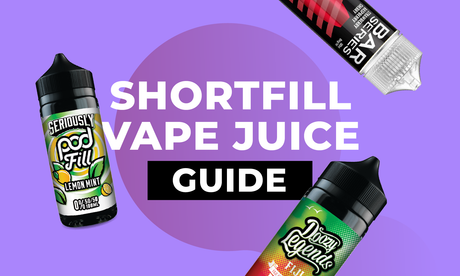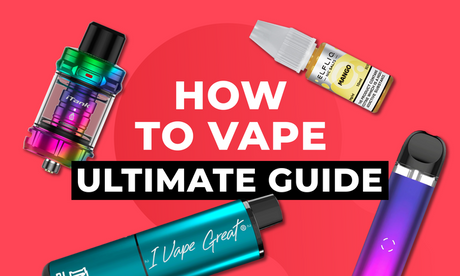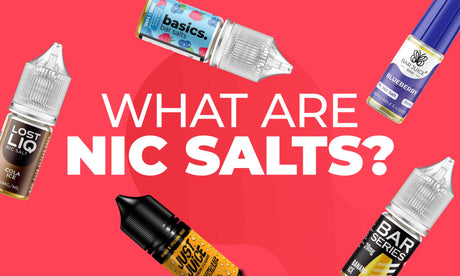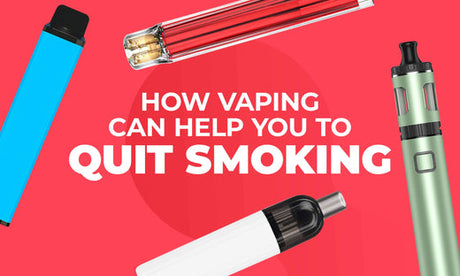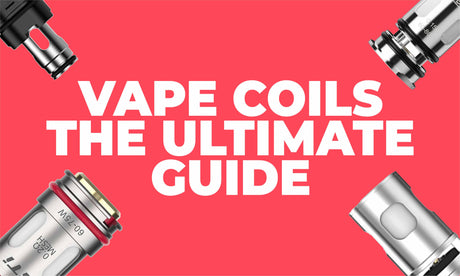Separating Vaping Myths and Facts
As with all relatively new inventions and societal changes, there will be those who rally against them. Lack of understanding, and purposeful spreading of misinformation by some competitors, led to fear and resentment.
Whatever the cause, we're here to debunk and explain some of these popular myths and misinformation associated with vaping.
1. Myth - Vapes Causes Popcorn Lung

"Popcorn Lung" is the term that was given to the disorder suffered by those that vaped an ingredient called Diacetyl.
Diacetyl was first used in Popcorn factories due to its intense buttery taste (hence the name Popcorn Lung), and then as an ingredient in sweet dessert-flavoured vape juices - however, what the industry didn't realise at the time was that although Diacetyl was safe to consume, it isn't safe to inhale.
When inhaled, Diacetyl causes bronchiolitis obliterans, which is scarring of the minuscule air sacs in the lungs.
Why vaping does not cause popcorn lung in the UK
Very few confirmed cases of "Popcorn Lung" were identified in vapers before the ingredient was banned in the UK. This means that any vape juices purchased from reputable manufacturers within the UK will NOT contain this chemical and thus won't cause irreparable Lung Damage.
2. Vape Myth - Vaping Is Worse Than Smoking

Another tall-tale that we hear quite frequently in the Vape Industry is that vaping is bad for you, and in some cases "worse than smoking". I'm not sure where this little piece of misinformation originated; but I can tell you it's entirely false.
Whilst vaping hasn't been around for that long in the grand scheme of things; it's been around long enough that several extensive studies and investigations have been conducted to deduce the possible side effects and consequences of vaping.
What the Facts say about Smoking vs Vaping
These studies concluded that vaping is 95% safer than smoking tobacco*. This is largely due to the ingredients within vape liquid, and how this liquid is vaporised and inhaled.
If you don't believe it, you can read the outcome of one of these studies by clicking here.
Public health England maintain that vaping is around 95% less harmful than smoking*
3. Vape Myth - Vaping Can Damage Your Lungs
I don't know whether to laugh or cry when I hear this. It's a well-known, documented and proven fact that cigarettes, and tobacco in general, contain harmful carcinogenic chemicals that can lead to irreparable damage to the lungs and, in the worst cases, cancer. Vaping, on the other hand, does not.
There is no evidence that vaping causes permanent or temporary damage to the body, especially the lungs. However, it has been proven that vaping poses significantly less risk than smoking tobacco because vapes don't produce tar or carbon monoxide - two of the most harmful components of smoking tobacco!
The Facts - No Tar, Smoke or Carbon monoxide
Since vape kits don't produce tar or carbon monoxide, it's a given that they're less damaging to your lungs. However, this depends upon them being used as intended with vape juice and coils purchased from reputable manufacturers. Modified devices or DIY devices used for other than vaping is dangerous, and we strongly advice not to tamper with them.
4. Myth - Vape Juice Contains Oil

There have been some rumours floating around, in the last year particularly, that vape liquid contains oil - that's absolutely untrue.
Whilst there are some vape juices that may use natural flavourings such as "orange oil", - these aren't actually oils, as oil isn't water soluble and therefore wouldn't mix correctly in a vape juice and wouldn't be safe to inhale.
So What's in Vape E-Liquid?
The main ingredients within a vape liquid are Vegetable Glycerin, Propylene Glycol, Flavouring and Nicotine - all of which are food-grade quality and go through rigorous testing to ensure that they don't pose any health risks before being sold.
If you're concerned that the vape juice you've purchased isn't safe, we'd recommend that you discontinue its use immediately and, in future, only purchase from reputable sources such as well-known manufacturers.
More: Learn About E-Liquids
Buying Tips
Avoid purchasing vape liquid from websites such as eBay & Amazon or from market stalls, as you don't know if they're legitimate or safe to use.
5. Myths - People Died From Vaping
Unfortunately, we've heard that several young people have been hospitalised, and some have even died due to vaping. Whilst this is a tragic incident and should not have happened, it's important to explain why this happened. These sad occurrences were isolated incidents; with normal use, there have been no deaths from vaping legal e-liquid or using TPD or FDA-approved devices.
It's unknown whether these young people already had preexisting conditions that may have acted as a contributing factor, but what is known is that most of these individuals were found to have been vaping a potentially illegal black market substance associated with THC cartridges.
Do not Use Vape Products that are Not Approved
The liquid used was neither FDA nor TPD-approved and hadn't been tested, as it was often procured from illicit websites. Due to this, chemicals were found within it that would not otherwise be in legitimate vape juice. One of these chemicals that is believed to have caused the most harm is Vitamin E acetate.
Vitamin E acetate is an oily substance often found in skin care products, which is safe when ingested; however, it's incredibly damaging when inhaled and can cause shortness of breath and fluid build-up in the lungs.
Vape Myth Busted
So, as you can see, it wasn't the vape that harmed these people, but the e-liquid they were using in their vapes, which was not the purpose of the vape device or e-liquid. This is why it's so important that you purchase your vape liquid from a reputable source. If you don't, you don't know what could be in the liquid or whether it could potentially harm you.
Concluding
To conclude, we know that vaping isn't for everyone. There will always be those who don't enjoy vaping or find it unnecessary, but that doesn't mean that benefits should be diminished. If you have questions or concerns, please contact us at Grey Haze or visit one of our stores for assistance.
Sources
Stoptober - NHS
Smoking Health Survey - NHS
95% Less Harmful Than Traditional Cigarette - Public Health England
